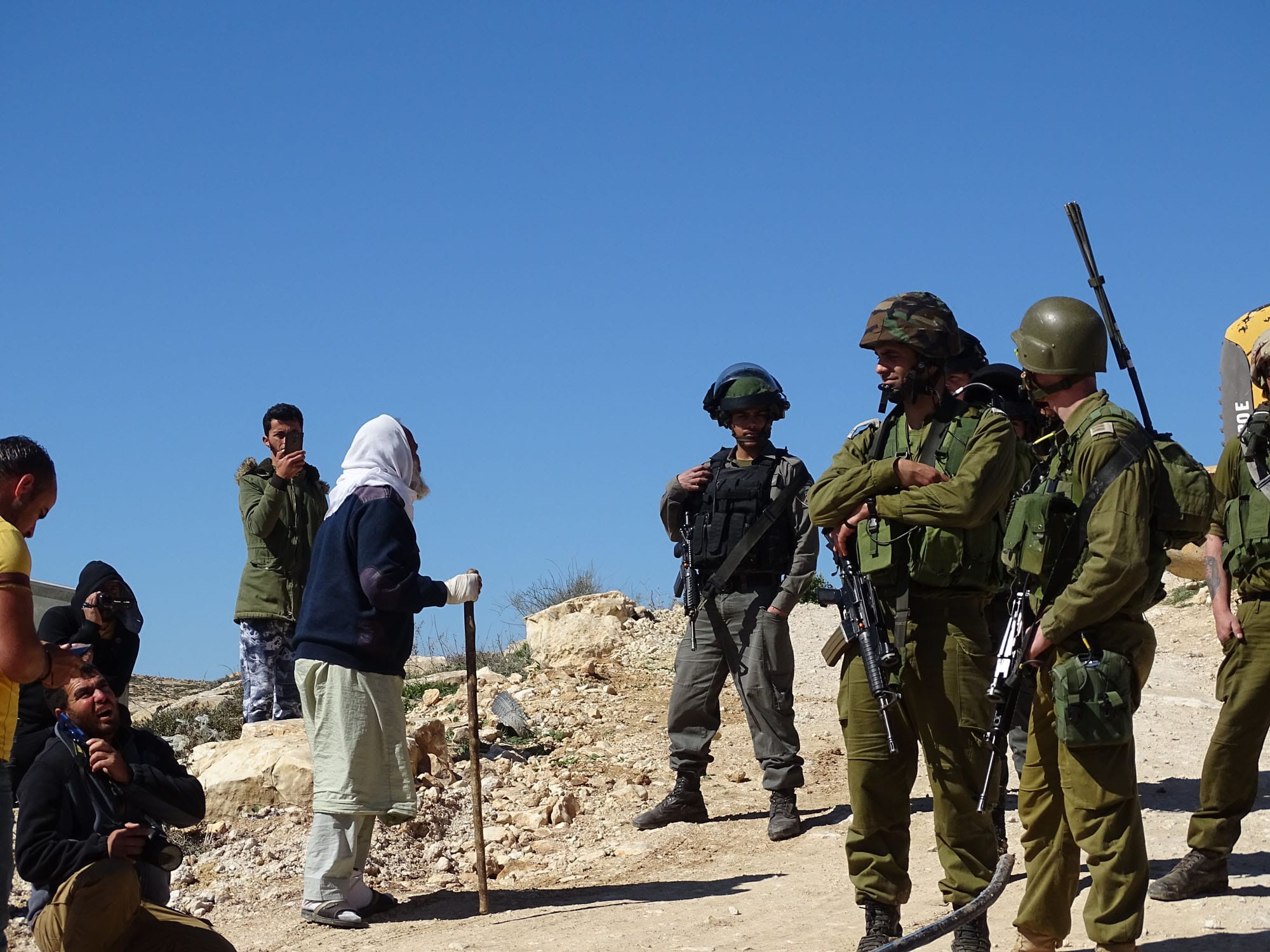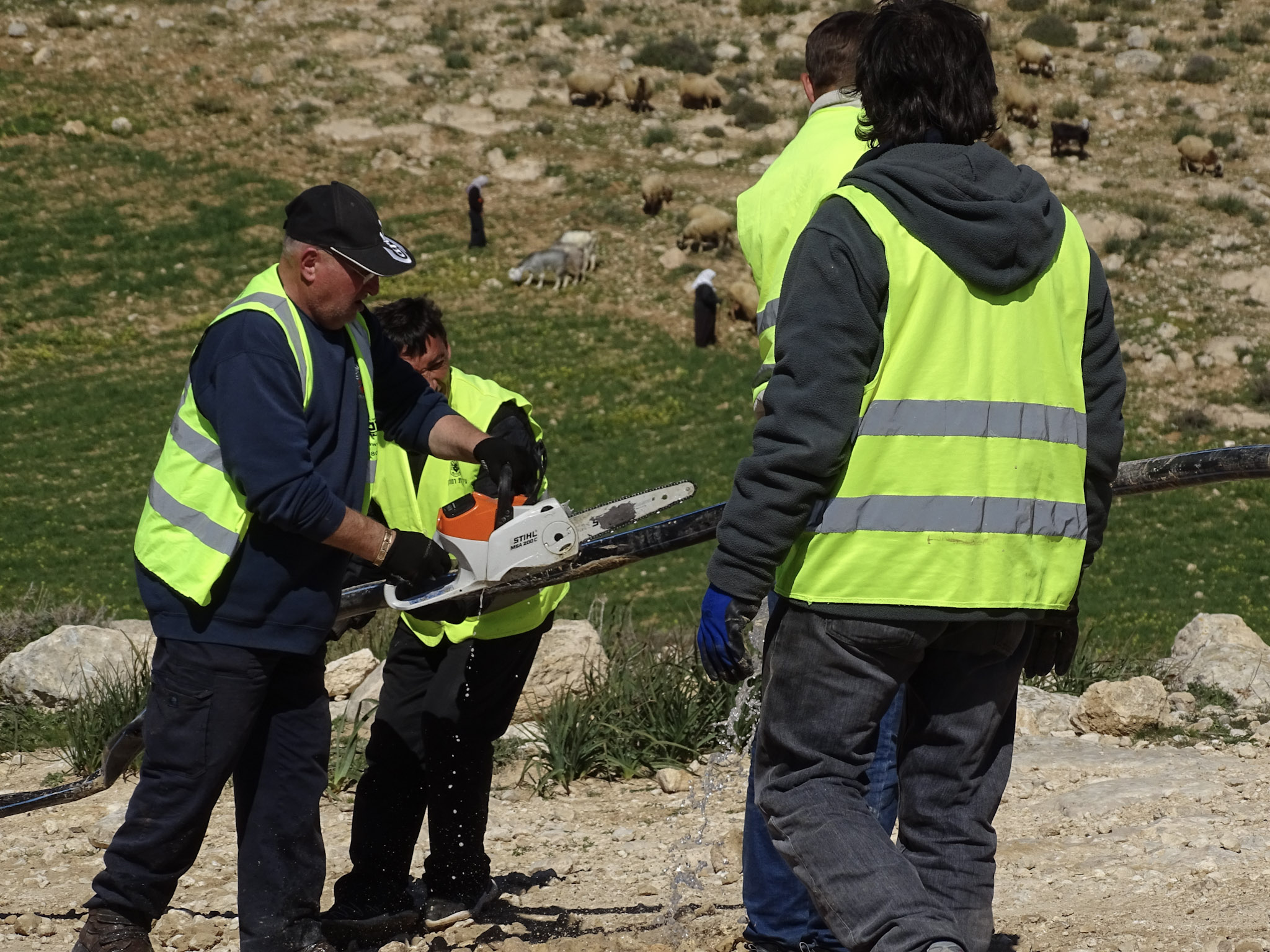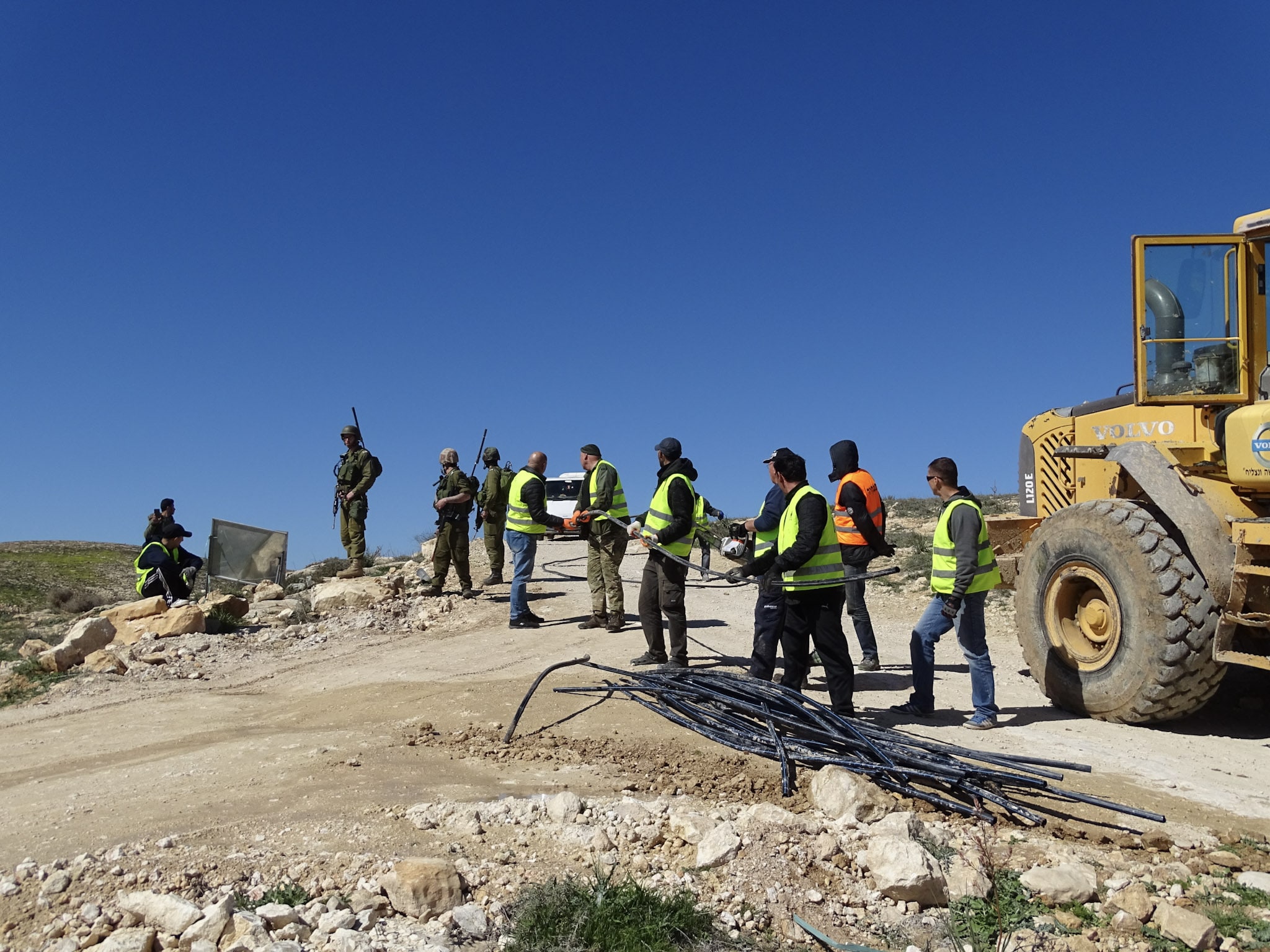EA Mike
On 13th February 2019 around 8am, a convoy of Israeli military vehicles, lorries and bulldozers drove into Masafer Yatta to destroy its water pipes. Masafer Yatta is a collection of Palestinian villages in the South Hebron Hills. It is a large area is at the southern tip of the occupied West Bank leading to the Green Line border with Israel and the Negev desert.
A confiscation order was summarily issued to the leader of Masafer Yatta Council, Nidal Yones. No prior warning had been given. Vehicles drove up the valley to the head of Khallet Ath Athaba. A Volvo bulldozer started to dig up water pipes, which were then cut into pieces with chainsaws. The pipes were then taken away in lorries. Around seven kilometres of water pipes were destroyed and confiscated in six hours. The officials overseeing the work had plans and seemed to know where all the pipes were to be found.
Israeli Civil Administration workers cut the water pipes
Around twenty Israeli Civil Administration (CA) workers cut the pipes. Palestinians including traditional Bedouin or ‘herding’ communities have lived on this land for many generations. It is part of what the international community calls occupied Palestinian Territory. For Israel, though, it is disputed land.
Israel designated Masafer Yatta as a closed military area, Firing Zone 918, back in the 1970s. This required Palestinians to leave their land. Over the years, the High Court in Israel has provided support to Palestinian villagers from Masafer Yatta, questioning the legality of their expulsion. However, the CA continues to implement policies which make life for Palestinians unsustainable. Many, therefore, are left with no choice but to leave of their own accord.
On this day, fifteen or more soldiers patrolled the area, keeping local people at a distance so that demolition work was not interrupted. Palestinian people took pictures and videos of the destruction and soldiers took pictures and videos of them and the international witnesses present. Occasionally soldiers checked the ID cards of local people. Two community leaders were arrested and later released.
Israeli soldiers stand guard as water pipes are dismantled
On this hot, early Spring day, twelve villages lose their water supply. Water required by roughly fifteen hundred men, women and children and tens of thousands of animals cared for by these people. There was no fighting. One old shepherd shouted at soldiers that he needed water for his sheep. A fellow EA saw some children start to throw stones at soldiers. They were quickly stopped by their elders. The response from the forty or so Palestinian men who watched this destruction at close quarters was one of quiet desperation and resignation. What could they do?
This operation was large scale, but EAs in this area also recently witnessed the destruction of small wells, which were constructed by families in isolated communities. The CA employs two main arguments to justify actions such as the destruction of water pipes and wells – lack of permits to build infrastructure, and security reasons.

Palestinian shepherd protests the destruction of the pipes



